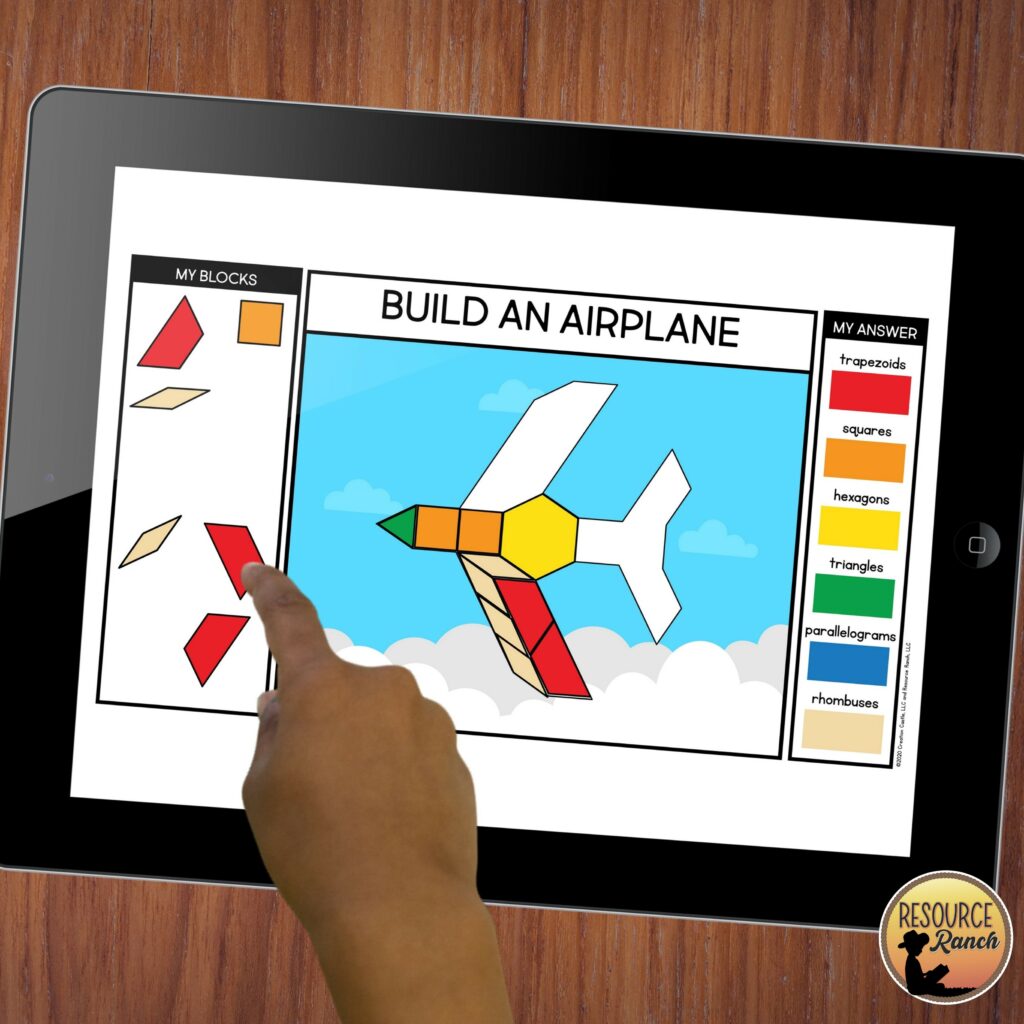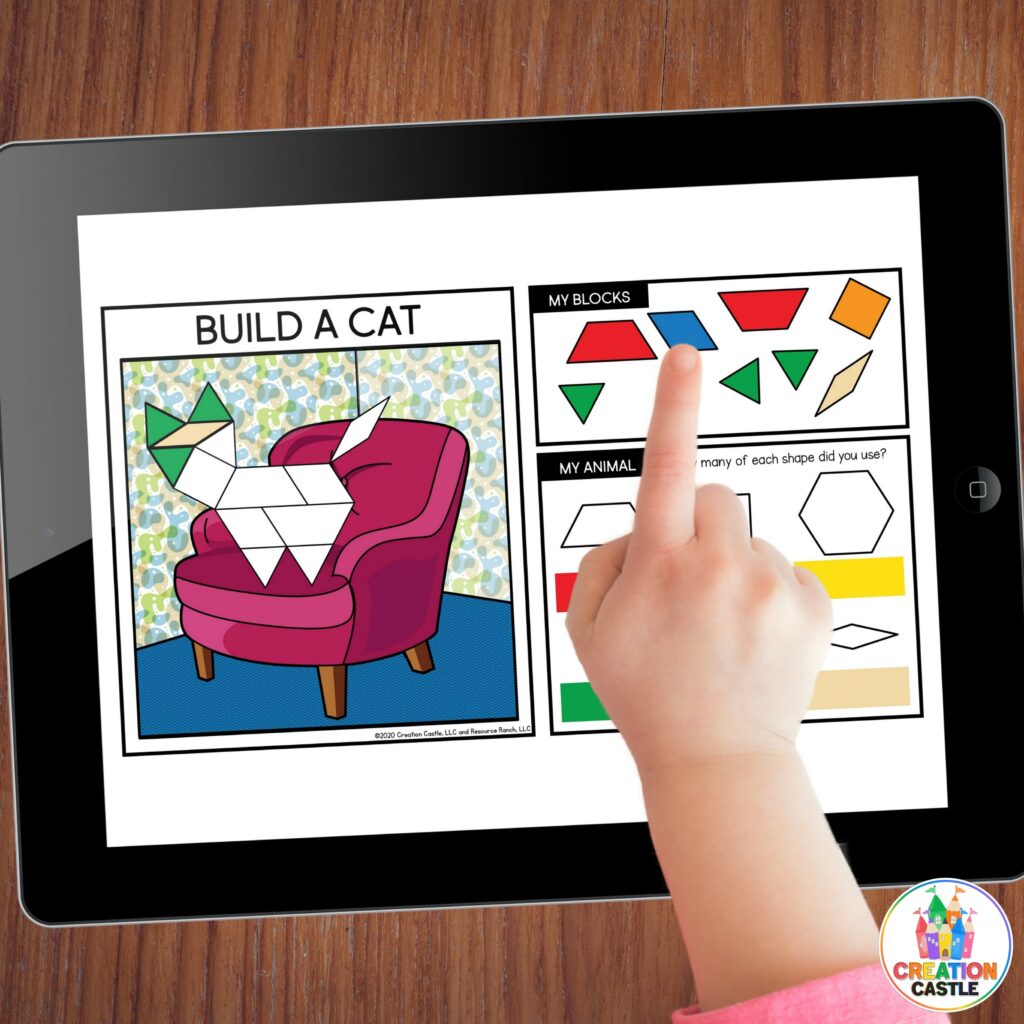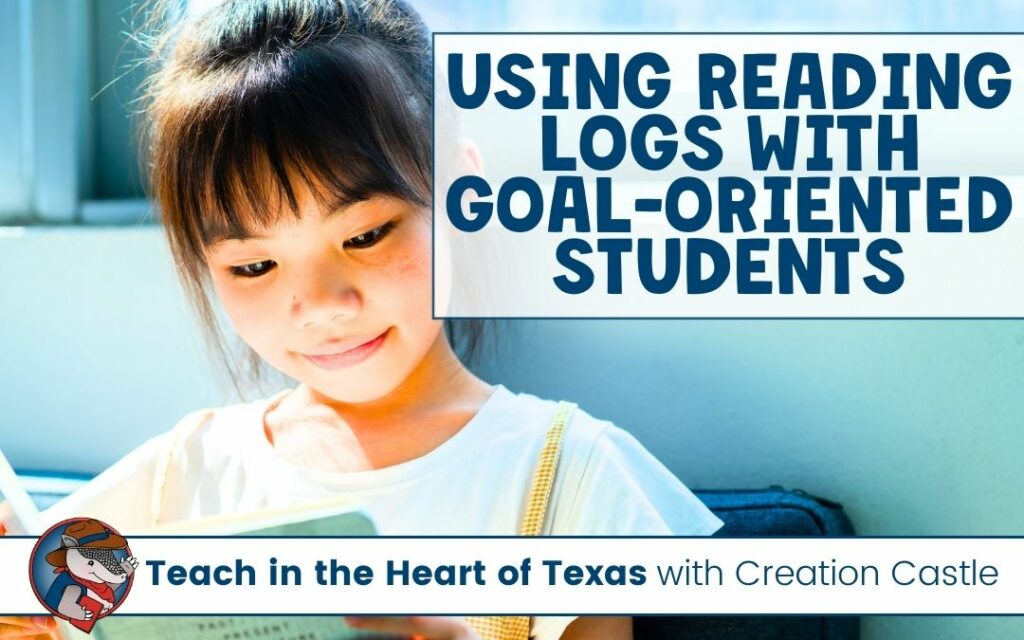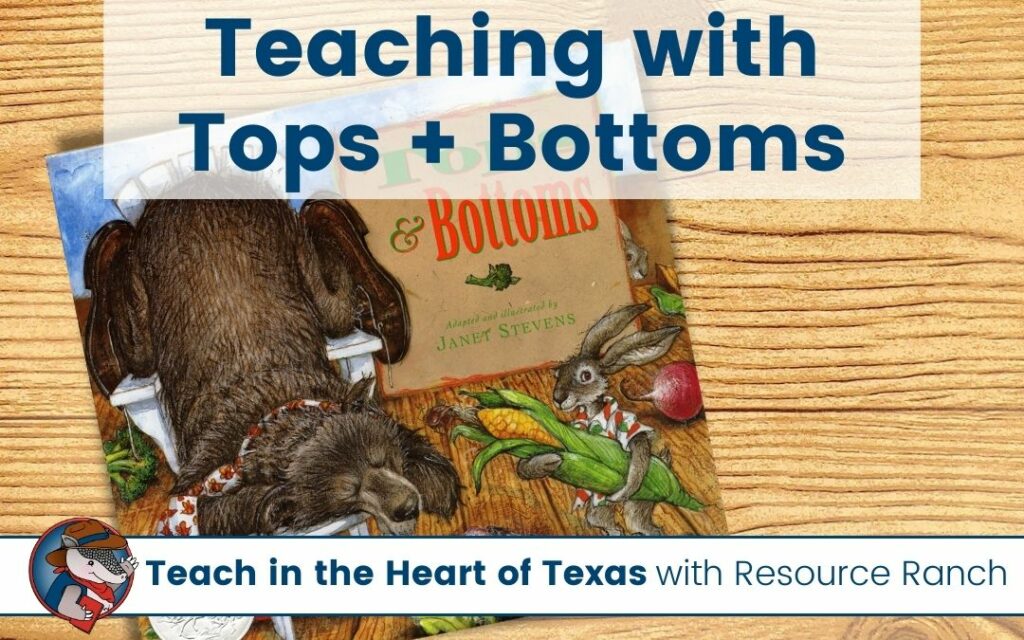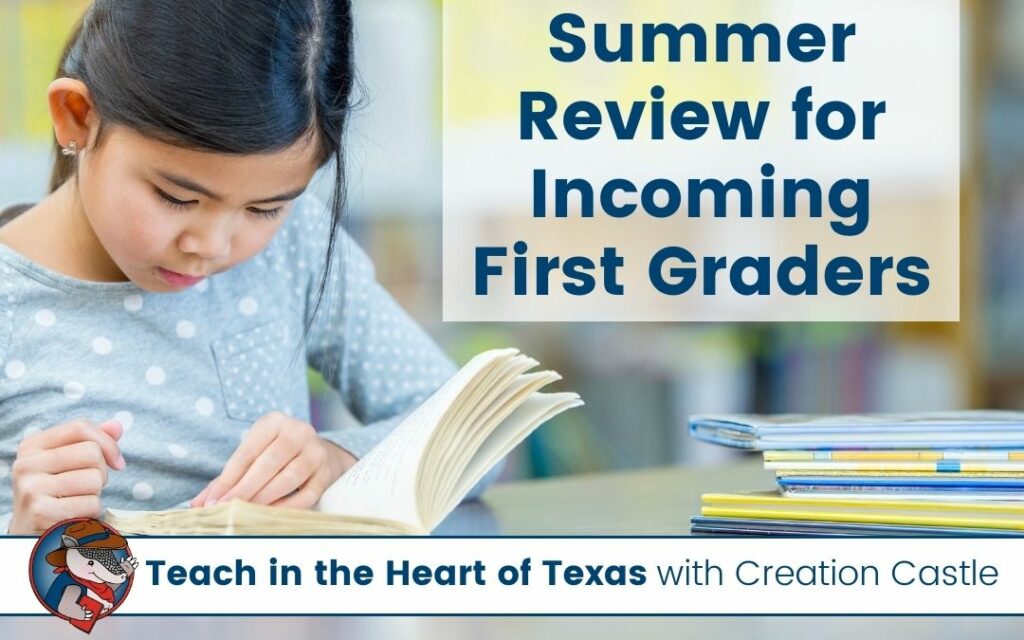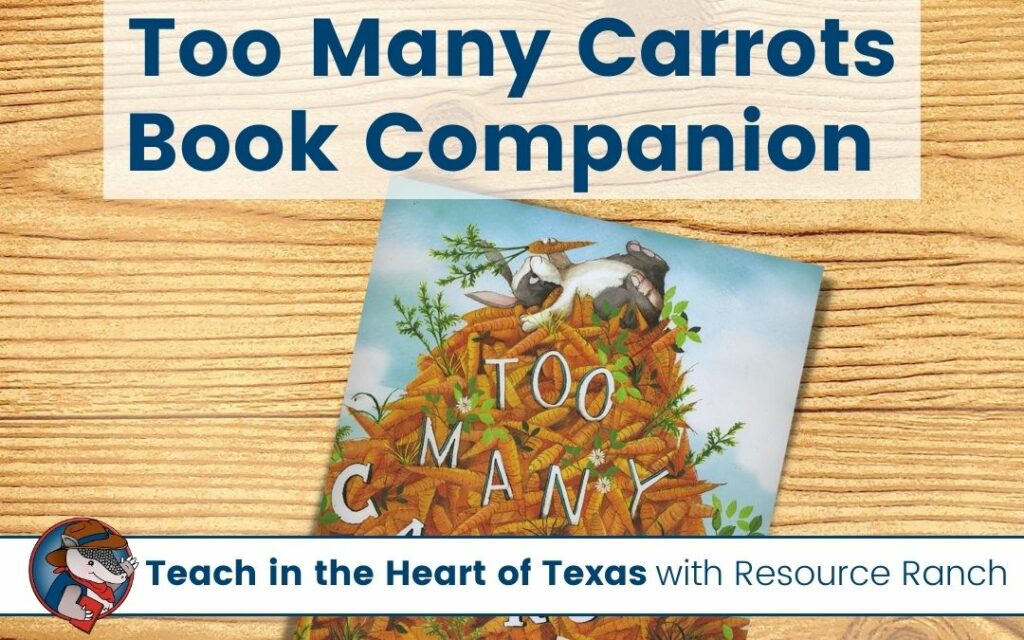Pattern blocks can be found in most elementary classrooms today, but they have been around for a long time. They were developed by Edward Prenowitz, in 1963, at the Education Development Center. The set of six colored geometric shapes was designed as a fun learning tool to help students make sense of math through play using manipulatives.
A pattern block set includes six different blocks with specific colors and geometrical shapes which fit easily together.
In a traditional pattern block set, you will find the shapes in these colors:
red = trapezoid
orange = square
green = equilateral triangle
blue = rhombus
yellow = hexagon
beige = narrow rhombus
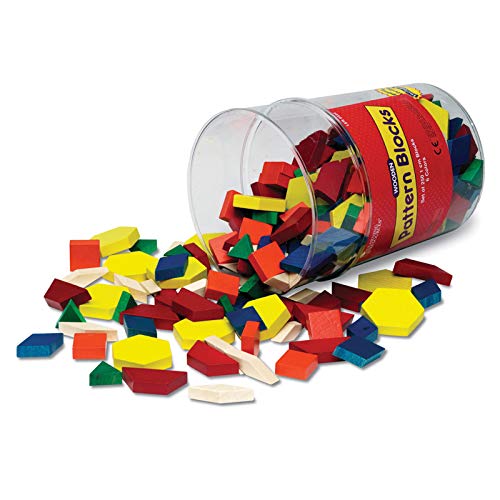
Quick Links
Using Pattern Blocks in Your Classroom
They are a great way for students to discover the relationship between shapes. They were created to offer a hands-on exploration but can now also be used digitally to investigate numerous math concepts such as:
- counting
- sorting
- equivalence
- geometry
- creating and extending patterns
- spatial visualization
- compose and decompose shapes
- symmetry
- fractions
Engaging Pattern Block Puzzles
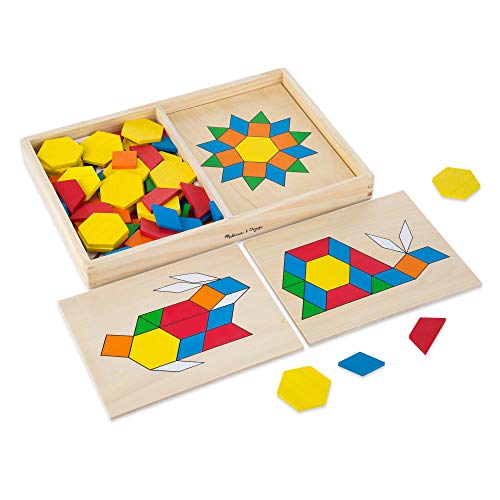
Students quickly find that the blocks can be used much like puzzle pieces to build pictures and designs.
One of our favorite ways to introduce pattern blocks is by having students find shapes within pictures of familiar animals and objects. Students search for shapes they recognize in the picture and then identify the same shapes from a group of blocks. They determine which shapes they need and how they must be placed to fit together. Then they count to record how many of each shape they have used.
Digital Pattern Blocks
You can also create a hands-on experience using technology with these digital pattern block mats. This is a great activity for classrooms with limited supplies, one-to-one devices, or even a blended learning classroom.
Pattern block puzzles can extend beyond math too! You may consider incorporating the blocks into another skill or concept you are working on. Pattern block alphabet mats are a fun and hands-on way for students to practice making letters. This activity is great for tactile learning and fine motor practice.
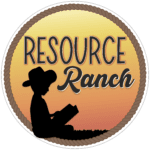
Resource Ranch
Rhonda is the author of Resource Ranch. Most of her classroom experience has been in early elementary. She has also taught Title I Reading, ESL, and gifted students. She is certified as a Texas teacher in grades 1-8 and as a K-12 librarian.

